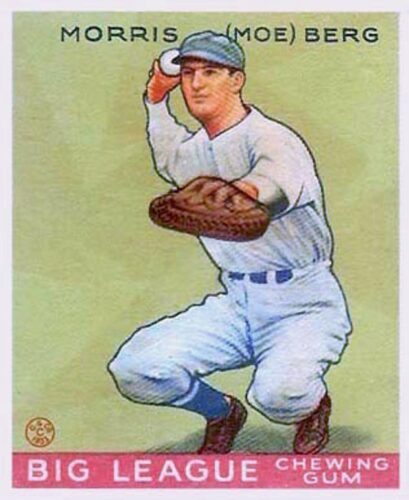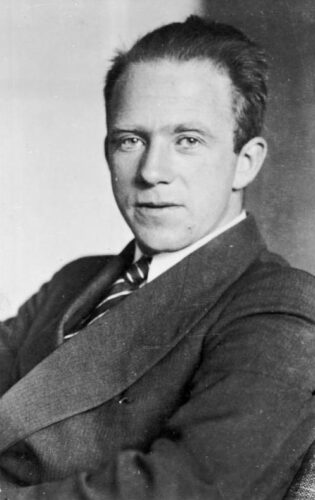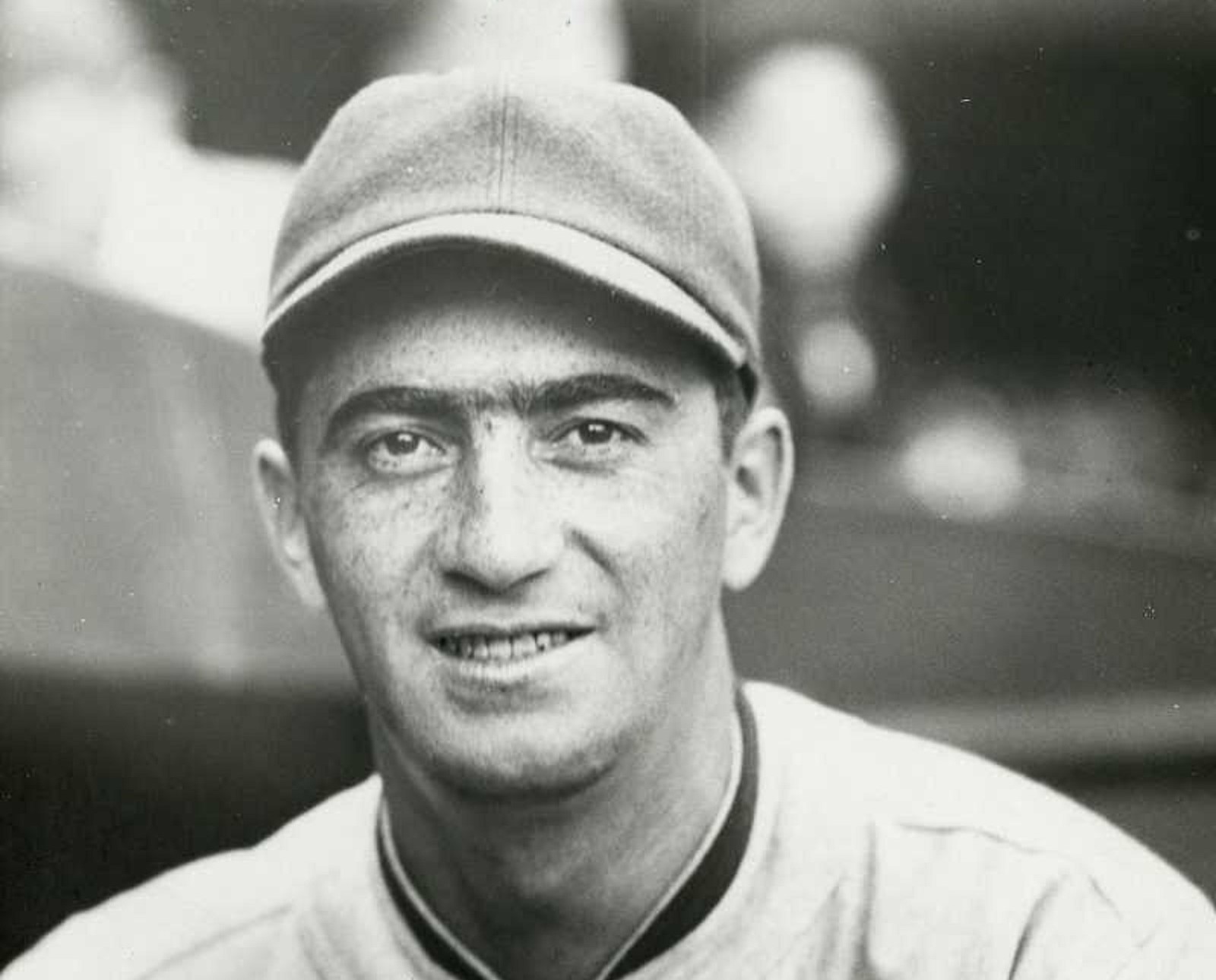Moe Berg. Photo: Central Intelligence Agency.
Berg made himself unique so comparisons were impossible.” ― Nicholas Dawidoff, The Catcher Was a Spy: The Mysterious Life of Moe Berg.
Morris (Moe) Berg was a remarkable individual who had a dual career as a baseball player and as a spy for the OSS during World War II. He was born in 1902 in New York to a Jewish family of Russian immigrants. He was a prodigy who learned to speak 10 languages fluently. He graduated from Princeton University in 1923 and had a 15-year long career in the major leagues. He played as a catcher and a shortstop for five different teams: the Brooklyn Robins, the Chicago White Sox, the Cleveland Indians, the Washington Senators and the Boston Red Sox. He retired from playing in 1939 and coached for the Red Sox until 1942. He was nicknamed the “brainiest man in baseball” because of his linguistic skills and intelligence. He also had a law degree from Columbia University and passed the bar exam in 1930.
Berg’s career as a spy began in 1934, when he joined a group of American baseball stars on a tour of Japan. While there, he secretly filmed Tokyo Harbor and other military installations, which he later gave to US intelligence officials. He also learned Japanese and French during his stay.

He joined the Office of Strategic Services (OSS), the precursor to the Central Intelligence Agency (CIA), in 1943. He worked for several branches of the OSS, including the Secret Intelligence Branch, the Research and Analysis Branch, and the Special Operations Branch.
One of his assignments was to monitor the activities of the exiled Yugoslavian king, Peter II, who was studying at Cambridge University in England. Berg also had to verify the accuracy of field reports from OSS agents in Yugoslavia, who were working with the resistance groups led by Josip Broz Tito and Draža Mihailović. Berg used his linguistic skills and contacts in the Slavic-American community to cross-check the information he received from the Balkans desk at the OSS headquarters in Washington, DC.
Berg’s mission was to assess the political situation in Yugoslavia and the potential allies for the United States in the postwar period. He had to determine which of the two rival factions, Tito’s communist Partisans or Mihailović’s royalist Chetniks, had more popular support and military strength. He also had to evaluate the risk of Soviet influence in the region and the possibility of a democratic government in Yugoslavia. Berg’s reports helped shape the American policy toward Yugoslavia and influenced the decision to support Tito over Mihailović.
He was also involved in several missions to gather information on the Nazi nuclear program. One of his most important missions was to travel to Italy in 1944 and interview several prominent physicists, including Enrico Fermi and Edoardo Amaldi, about the status of the Nazi nuclear weapons program. Fermi and Amaldi, had worked with Niels Bohr and Albert Einstein on nuclear physics. Berg wanted to find out how close Germany was to developing an atomic bomb and whether the Italian scientists were involved or willing to help the Allies. He managed to obtain valuable information from his interviews and reported back to the OSS, which helped the Allies assess the threat of the Nazi nuclear program.

He was also sent to Zürich, Switzerland, in December 1944, where, masquerading as a Swiss physics student, he attended a lecture by Werner Heisenberg, the director of the Nazi nuclear research, He had a pistol tucked into in his jacket pocket (and a cyanide capsule in case of capture) and was prepared to assassinate Heisenberg if he revealed any evidence that the Nazis were close to having an atomic bomb. However, Berg decided not to kill Heisenberg after listening to his speech and concluding that he did not have enough knowledge or resources to build a bomb. Berg recorded his speech and took notes that were later analyzed by the OSS.
Berg’s contributions to the OSS were highly valued and he received several awards for his service, including the Medal of Freedom, the highest civilian honor in the United States. He declined the medal, however, because he did not want to reveal his role as a spy.
After the war, Berg’s life became more obscure and mysterious. He declined several offers to coach for Major League Baseball and worked briefly for the CIA in 1952. He spent most of his time living with his brother Sam, a physician, or his sister Ethel in New Jersey. He never married and had no children. He was often seen in libraries or at baseball stadiums, where he had a lifetime pass. He died in 1972 at the age of 70. His service as a spy did not become public until after his death.
Moe Berg’s legacy is that of a man who combined his love for baseball with his patriotic duty as a spy. He was one of the most interesting and enigmatic figures in American history, who crossed paths with many influential people and witnessed many historical events. He was honored by several institutions for his achievements, including the National Baseball Hall of Fame, which featured an exhibit on him in 2018. His life story has been told in several books and documentaries, as well as a feature film starring Paul Rudd in 2018.
*The views and opinions expressed on this website are solely those of the original authors and contributors. These views and opinions do not necessarily represent those of Spotter Up Magazine, the administrative staff, and/or any/all contributors to this site.
